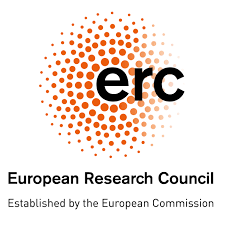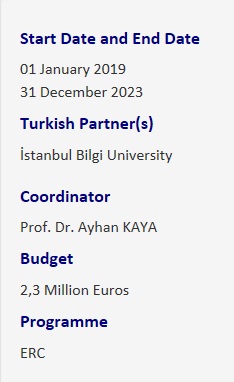
Feb. 7, 2019, 3:06 p.m.
ERC IN A NUTSHELL
The European Reseach Center's (ERC) mission is to encourage high-quality research in Europe through competitive funding and to support investigator-driven frontier research across many fields, on the basis of scientific excellence.
The ERC complements other funding activities in Europe such as those of the national research funding agencies, and is a flagship component of Horizon 2020, the European Union's Research Framework Programme for 2014 to 2020.
The ERC approach allows researchers to identify new opportunities and directions in any field of research, rather than being led by priorities set by politicians. This ensures that funds are promising areas of research with a greater degree of flexibility.
However, the ERC aims to do more than simply fund research.
It substantially strengthens and shapes the European research system by high-quality peer review, the establishment of international benchmarks of success, and the provision of up-to-date information on who is succeeding and why.
The ERC aims to:
Support the best of the best in Europe across all fields of science, scholarship and engineering
Promote wholly investigator-driven, or 'bottom-up' frontier research;
Encourage the work of the established and next generation of independent top research leaders in Europe;
Reward innovative proposals by placing emphasis on the quality of the idea rather than the research area;
Raise the status and visibility of European frontier research and the very best researchers of today and tomorrow.
Success Story: ISLAM-OPHOB-ISM

Scientific Outputs
In this research project funded by ERC; Prof. Kaya will build on the work he has been doing for decades on trying to understand the reflexes developed by Muslim youth and native youth living in Europe. The main aim of the project is try to understand these two social groups with a single scientific lens/perspective and to criticize the culturalist paradigm.
 Tackling ‘grand’ or societal challenges
Tackling ‘grand’ or societal challenges
The project claims that young people, whether indigenous or immigrant-origin, respond to similar threats such as deindustrialization, isolation, denial, humiliation, precariousness, insecurity, and anomia, which have different reflections on globalization, in a similar way. These responses tend to be radicalized in the face of current socio-economic, political and psychological disadvantages. While a number of indigenous young groups are shifting to right-populism, a number of Muslim youths are shifting towards Islamic radicalism. In the past, young groups, which tend to be radicalized in similar socio-economic, political and psychological conditions, use the discourses of leftist ideologies, today they are interested in the right populism or solemn religious discourse.
The improved exercise of professional skill
The research project lies in an intersection between political science, sociology, anthropology and psychology. The project has a team of well-known European scientists from Germany, Belgium, France, the Netherlands in the Advisory Board and Ethics Committee. The field work will be carried out in Germany, Belgium, the Netherlands and France and the information will be collected through in-depth interviews with indigenous groups of young people and Morocco-origin/Turkey-origin young people living in different cities of these countries. The results of these projects expected to provide a paradigmatic transformation in the studies of youth, radicalization and marginalization.
Sources and more information about ERC:
Tags
erc, eu, fund, science, project
